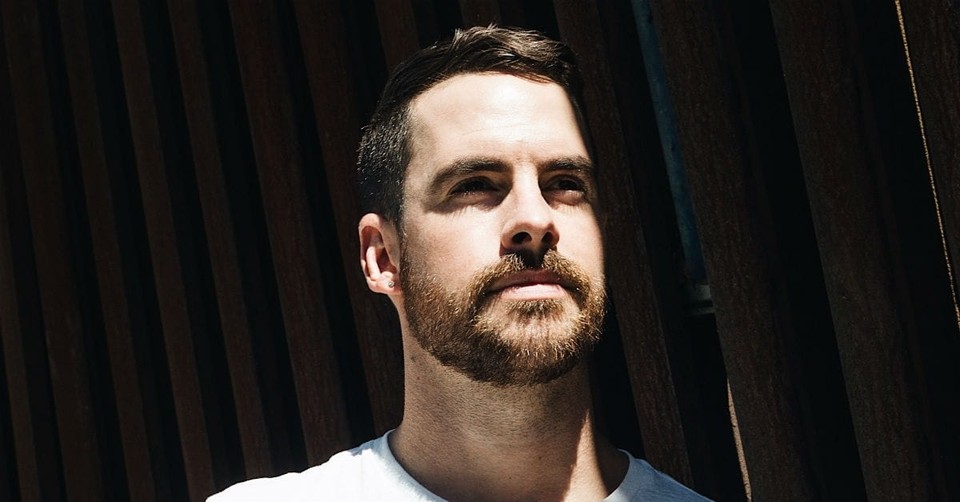Are You In Debt to God?

New York City…
If you want a view of the skyline, visit the Brooklyn Bridge.
For entertainment go to Broadway.
Like to shop? The stores on Fifth Avenue await your credit card.
But if you want to be absolutely distraught, take a cab to the corner of Avenue of the Americas and West Forty-Fourth Street and spend a few moments in the presence of the United States National Debt Clock. The sign is twenty-five feet wide, weighs fifteen hundred pounds, and uses 306 bulbs to endlessly, mercilessly declare the US debt and each family’s share. As I stood before the clock, watching the numbers ever scroll upward, I wondered, “What if heaven had one of these? A marquee that measured, not our fiscal debt, but our spiritual one?”
Scripture often refers to sin in financial terminology. If sin is a debt, do you and I have a trespass counter in heaven? Does it click at each infraction?
We lie. Click.
We gossip. Click.
We demand our way.Click. Click. Click.
Talk about depressing.
The algebra of heaven reads something like this: heaven is a perfect place for perfect people, which leaves us in a perfect mess. According to heaven’s debt clock we owe more than we could ever pay.
The realization of our moral debt sends some people into a frenzy of good works. Life becomes an unending quest to do enough, be better, accomplish more. Every day brings more sin, more debt, more striving to the point of exhaustion. Other people respond to the list, not with activity, but unbelief. No God would demand so much. He can’t be pleased. He can’t be satisfied. Therefore, this God must not exist. If he does exist, he is not worth knowing. So, they throw up their hands and walk away.
Two extremes. The legalist and the atheist. The worker desperate to impress God. The unbeliever convinced there is no God. But are despair and disbelief our only options? No one loved to answer that question more than the apostle Paul, who said, “There is now no condemnation for those who are in Christ Jesus” (Rom. 8:1).
Paul understood what it meant to pile up crushing spiritual debt. Paul entered the pages of Scripture as Saul, the self-professed Pharisee of all Pharisees and the most religious man in town. But all his scruples and law keeping hadn’t made him a better person. He was bloodthirsty and angry, determined to extinguish anything and everyone Christian.
Paul’s attitude began to change on the road to Damascus. That’s when Jesus appeared to him in the desert, knocked him off his high horse, and left him sightless for three days. Paul could see only one direction: inward. And what he saw he did not like. When Paul’s sight finally returned, he had a new mission.
Within a few days he was preaching about Christ. Within a few years he was off on his first missionary journey. Within a couple of decades, he was writing the letters we still read today. We aren’t told when Paul realized the meaning of grace. But we know that he embraced the improbable offer that God would make us right with him through Jesus Christ.
Paul’s logic followed a simple outline:
Our debt is enough to sink us.
God loves us too much to leave us.
So God has found a way to save us.
Paul understood more than anyone the devastation of realizing that all the time he thought he was so right, so good, the debt clock had been clicking away. The problem is that God’s standard isn’t mere goodness. His standard is the flawless, ceaseless reflection of His perfect image every moment of every day. Who among us reflects the image of God all day every day? According to Paul…no one (Romans 3:10-11). So, what are we to do? God is holy; we are not. He is perfect; we are not. His character is flawless; ours is flawed. A yawning canyon separates us from God.
What hope do we have? Paul points us to Abraham, the patriarch of Israel. Abraham had a spiritual debt. He was a good man, I am certain, but not good enough to live sin-free. His debt clock had abundant clicks.
Every time he cursed his camel. Click.
Every time he flirted with a handmaiden. Click.
Every time he wondered where in the world God was leading him, and if God knew where in the world he was headed. Click. Click. Click.
But for all the bad things Abraham did, there was one good thing he chose to do. He put his faith in God.
“Abraham believed God, and it was credited to him as righteousness.” (Rom. 4:3)
Here is the good news of grace: Jesus’s suffering and death on the cross fully paid the debt of each and every one of our sins. At the moment of Jesus’s death, an unbelievable miracle occurred. “Jesus cried out with a loud voice, and breathed His last. Then the veil of the temple was torn in two from top to bottom” (Mark 15:37–38 nkjv). The veil separated the people from the temple’s Most Holy Place, and it had done so for centuries. According to tradition, the veil—a handbreadth in thickness—was woven of seventy-two twisted plaits, each consisting of twenty-four threads. The veil was apparently sixty feet long and thirty feet wide. We aren’t talking about small, delicate drapes. This curtain was a wall made of fabric. The fact that it was torn from top to bottom reveals that the hands behind the deed were divine. God himself grasped the curtain and ripped it in two. No more division. No more separation. No more sacrifices…
No condemnation.
Take the promise of God’s grace to your personal debt clock. As you look up at the insurmountable debt you can never pay, stand on this promise: “There is now no condemnation for those who are in Christ Jesus” (Rom. 8:1).

For every pre-ordered copy of Max Lucado’s forthcoming book, Unshakable Hope: Building Our Lives on the Promises of God, Thomas Nelson will donate a special paperback edition to two specially-chosen international ministries. Each pre-order purchase of Unshakable Hope can be registered at www.UnshakableHopeBook.com through August 5.
Follow his website at MaxLucado.com
Facebook.com/MaxLucado
Instagram.com/MaxLucado
Twitter.com/MaxLucado
Photo Courtesy: Unsplash/Jeslyn Chenchaleune
Originally published July 19, 2018.





